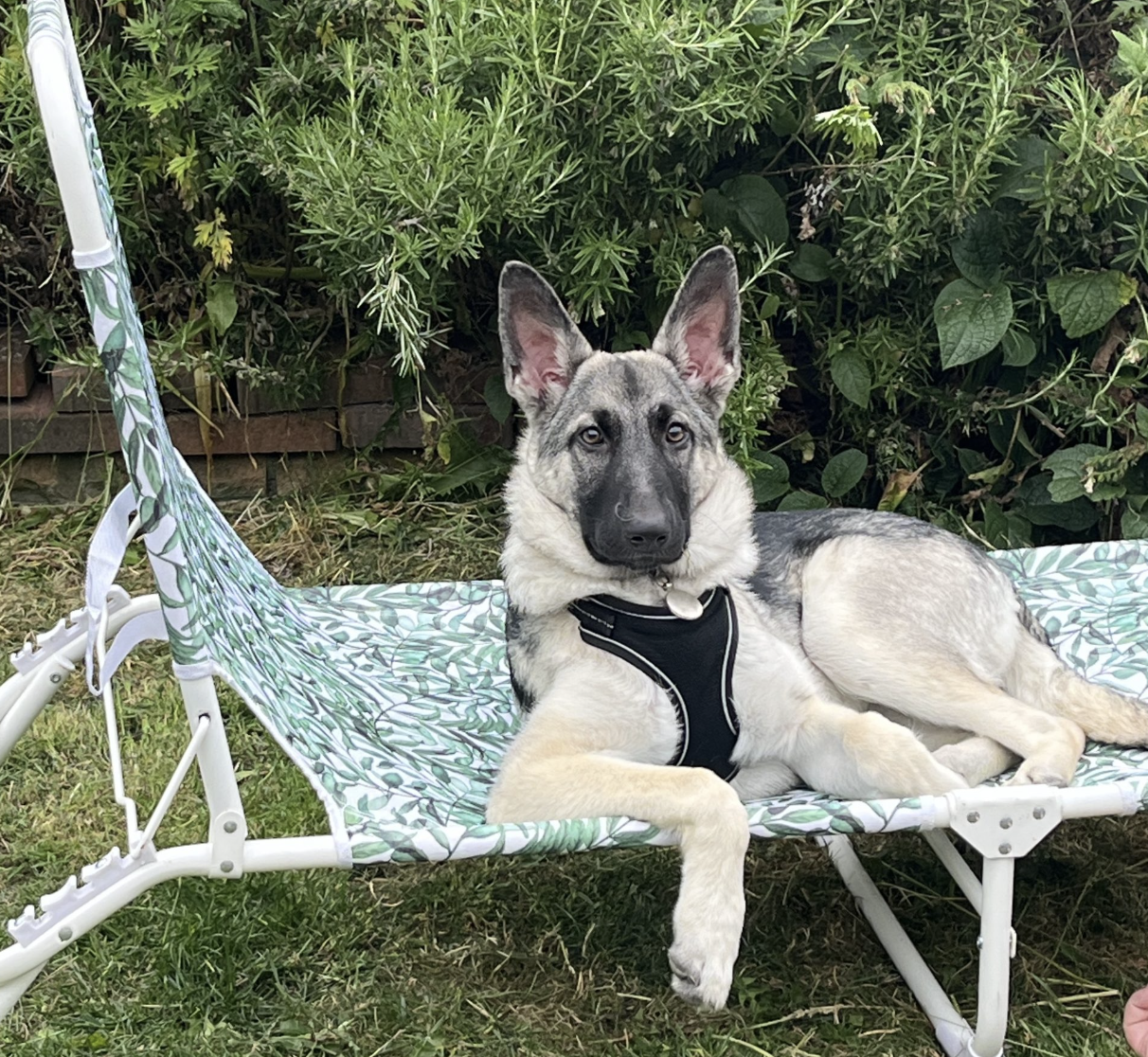
Whenever anyone asks me how my puppy, Lagertha, is doing, I say:
“When she’s good, she’s very, very good, and when she’s bad, she’s feral.”
I shared that line with a friend recently and she paused for a moment before replying: “I feel like that could describe all women.”
Her words really made me think.
This year, I’ve been working with my feral self, and I’ve also heard the word feral an awful lot.
But what does feral even mean?
It’s when we break out of the bounds of our domestication and become wild again. When I say feral, I think of a trapped animal finally released from their cage.
In terms of Lagertha, she picks up her toys and flings them all over the house; she’s still learning what to do with her big teeth, so thinks nothing of chomping on my toes or sofa.
And she flees around the garden with joyful abandon and no thought for who or what may be standing in her way, unless the sight of a bird or noise of a passing conversation is too damned enticing not to devote her attention to.
She gives all of herself to every moment, every emotion, and every activity—and it is an absolute joy to witness.
In many ways, feral has become synonymous with dangerous. And perhaps there is a danger to many of the institutions and rules that would prefer we “behave.”
But in truth, the word has nothing to do with danger.
It makes me think about the story of Lilith and her escape from Eden.
When Lilith was in Eden, she was domesticated and taught the rules of the allegedly paradisical garden, so she could live by them. Eventually, though, she chose to say no thank you and left.
When she flew out of Eden, she lived on her own terms—and she became the first feral woman.
What does that really mean?
It means we go back to nature and our own wildness.
Wildness can mean howling at the moon, dancing naked under the stars, or rolling in the grass.
But it also means listening to ourselves, breaking out of the conditioning the world puts upon us, the brainwashing by nature, the constant subjection to advertising, the noise of what we should be doing, and instead, coming back to a place where we’re sovereign and our mistress.
When we’re feral, we stop being beholden to people and behaving the way the world tells us we “should.”
Instead, we behave the way we truly are, in line with our natural selves.
With that in mind, when it comes to Lagertha, I’m trying to understand the balance between what is training her and what is breaking her spirit, which we so often do with wild animals, humans included.
I don’t want to take away the magic that is her vibrancy and her spirit, but I do want her to know what is safe behaviour for her, me, and anyone else she comes into contact with.
I also want her to be wild at times.
I want her to be her feral self, because I know how important that is.
For me, a really important part of my journey has been in returning to my feral self and coming to recognise what’s safe and okay. It’s also about knowing that some of the rules imposed upon me aren’t safe and good but have been imposed upon me to keep me small.
In many senses, that’s where we come back to with the idea of “feralness.”
A feral woman is one who is wild and unafraid of the consequences of being herself. She’s as immersed in nature as she is in her natural self, and has the wild courage that allows her to break free of the rules that would ask her to be anything less.
I want us all to be a bit more feral—don’t you?
~
Please consider Boosting our authors’ articles in their first week to help them win Elephant’s Ecosystem so they can get paid and write more.
~











Read 0 comments and reply